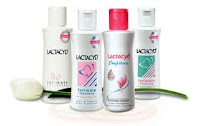
Preventing and Curing Bacterial Vaginosis
Bacterial vaginosis is a bacterial infection of the vagina. The symptoms of this infection are the presence of the discharge and odor. It is caused by disruption from the regular bacterial flora in the vagina.
Bacterial vaginosis might not require treatment in all cases. If the symptoms are very mild then it's often better to wait, since the infection will generally clear up by itself as the balance of bacteria within the vagina returns to regular. Pregnant ladies ought to usually be given treatment for bacterial vaginosis, however, since it can lead to certain complications for pregnant women, including infection of the womb and pelvis.
There have been suggestions that eating a periodic or reside yogurt could assist to treat bacterial vaginosis, but there is no reliable scientific evidence to support this belief.
If treatment is necessary, it will be given in the form of a course of antibiotics. This will usually be a week long course of oral metronidazole, although other antibiotic treatments may be offered instead. A vaginal antibiotic cream may be prescribed instead of tablets, for example. It is important to finish the whole course of antibiotics, and to take every dose, since non-compliance could reduce the efficacy of the antibiotics. It could also increase the chances of the condition reoccurring, although even if the instructions are followed exactly and every does of antibiotics is taken, bacterial vaginosis is a condition with a high likelihood of returning. Approximately one third of women who have had bacterial vaginosis experience a recurrence within just three months.
You will find a number of ways in which the probabilities of the recurrence of bacterial vaginosis can be reduced. Even though there is generally no definite and obvious cause of the situation, it arises as the result of a disruption to the environment from the vagina and the bacterial flora that reside there. This means that the best way to prevent a return of the situation would be to avoid activities that could trigger such a disruption.
A mild detergent should be used to wash the underwear. Strong chemicals could upset the balance of bacteria in the vagina. Similarly, the chemicals that are used in bath water and to wash the vagina should be as mild as possible. This includes any chemical that is used in the bath, such as soap, bubble bath or shampoo. The vagina itself should not be washed too often. It is enough to clean the area once a day. Douching, or pushing water into the vagina, should be avoided completely.
by: Mario Gomira
http://www.articlerocket.com/women-only/health-issues/preventing-and-curing-bacterial-vaginosis.html


2 comments:
Fighting with candida and winning is not a tough task but the key is, one must have the required information. Only in this way, one can get rid of this disease. And in giving the information, some posts like yours are playing too crucial role. Great work my friend.
candida dieet
The most common question asked about bacteria is 'are bacterial infections contagious?'. Bacteria affect people who have low immunity like the elderly or infants. Malnutrition or deficiency of vitamins and nutrients may also lead to bacterial infections.
Bacterial Vaginosis Treatment
Post a Comment